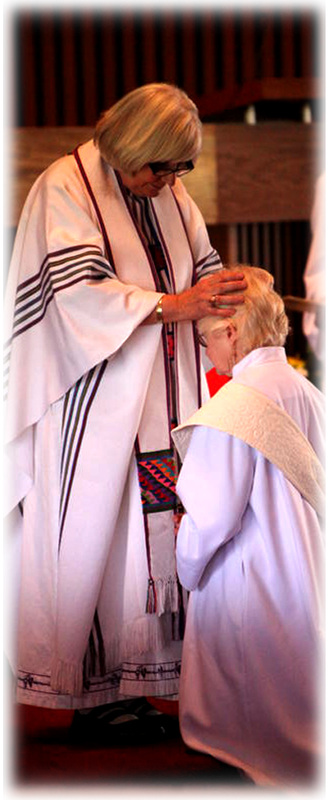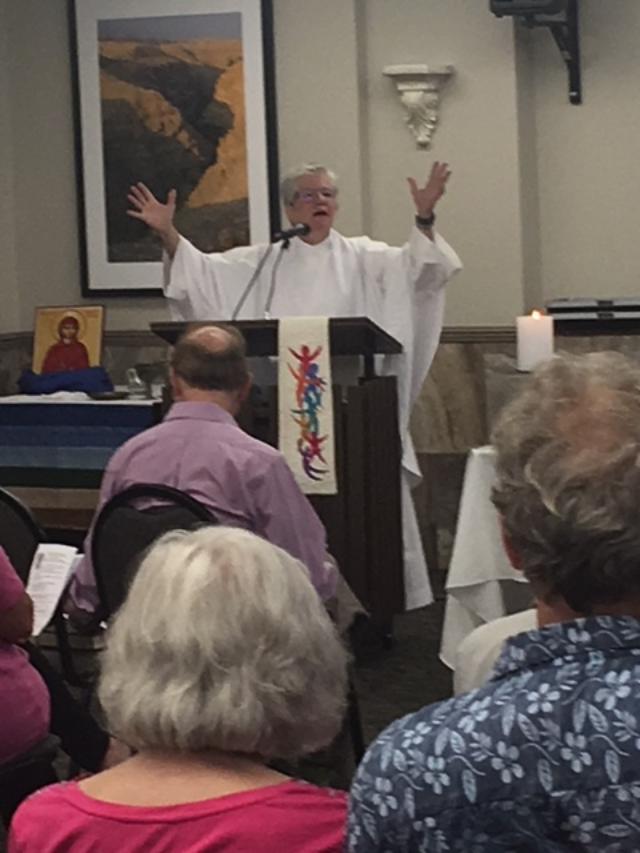Do you remember the television game show, Family Feud? A contestant from each of the two families stands in front of one another with their hand on a big button ready to push it as soon as they think they have a good answer to the game show host's question.
The same is true in Jeopardy. While Alex Trebek is giving the answer to a question, the contestants stand there, listening intently, ready to be the first to hit the button and verbalize the question.
In both of these games, hand on button is the contestant's default position. They only have one purpose at that moment, to hit that button as soon as possible. Sometimes the contestants hit the button prematurely before they know what to say. They are willing to risk being wrong in order to be the first to hit the button.
As we head into the Holiday Season, our hands should be resting comfortably on the buttons of grace, generosity, and gratitude, ready to strike at a moment's notice. These should be our default position. Sometimes we show grace, generosity, and gratitude prematurely, which can be risky, but we are never wrong in doing so.
Unfortunately, sometimes people have their hand on the wrong buttons. I have read with interest many of the comments on social media about the recent controversy over Starbuck's red cups. The young man who created the controversy claims to be operating as a disciple of Jesus Christ, and yet rather than soak in the holiday spirit and enjoy a hot cup of Joe, he seems to want to turn up the heat on a bogus and discredited annual event called "The War on Christmas."
In case you missed all the frenzy, this man wants "Christian" customers to enter Starbucks with a gun, order a cup of coffee, and tell the server that their name is "Merry Christmas," just so Starbucks will have to write "Merry Christmas" on their cups.
Sometimes l feel like l missed the lecture on what it means to be a Christian. Rather than our hands resting on the buttons of anger, threats, and intimidation, ready to push those buttons (or pull the trigger) at a moment's notice, shouldn't our hands be resting on the buttons of grace, generosity, and gratitude?
Where are our hands resting as we enter this Holiday season? What buttons are we ready to push?
It is not too difficult to imagine where the hands of Paul and Jesus were resting. Paul's favorite default button was the button of grace, because this was God's default button. "There are no limits to the grace of God," he said. No matter the season or time of year, our hands should always be resting near the button of grace, ready to strike immediately, even prematurely.
Although the concept appeared earlier in Catholic theology, the great Methodist churchman, John Wesley, had a name for what we might consider to be premature grace. Wesley called it God's "prevenient grace."
Prevenient grace is defined as divine grace that precedes human decision. It exists prior to and without reference to anything humans may have done. In other words, even before you and I are ready to hit the buttons of grace, generosity, and gratitude, God hits the buttons for us.
The best way for us to respond to God's grace in our lives is with generosity and gratitude. For Paul, his hands were resting steadily on the plow of generosity. "If you plant sparingly, you will reap sparingly, and if you plant bountifully, you will reap bountifully."
In his second letter to the Corinthians, Paul suggests our generosity is an imitation of God's generosity, "The One who provides seed for the planter and bread for food," the One who "will also supply and enlarge your store of seed and increase your harvest of justice." God's hand rests on the button-or plow-of generosity, and so should ours.
Paul echoes the same theme in his letter to the Galatians: "The person who plants selfishness, ignoring the needs of others ignoring God!-harvests a crop of weeds! But the one who plants in response to God, letting God's Spirit do the growth work in him, harvests a crop of real life, eternal life."
Jesus illustrates God's generosity, recorded in Matthew's Gospel. Speaking of default buttons, for Jesus the wrong button to push is the button of worrying and anxiety. There are times when we can't help but push those buttons, and yet our hands should never be resting close to them.
Instead, our hands should be resting on or near the buttons of faith and trust in God's generosity. If God takes care of the birds of the air and the wildflowers of the fields, then it goes without saying, Jesus claims, that God will take care of us. And if God takes care of us, isn't the proper response one of gratitude and generosity toward others?
Hands that are resting on the buttons of faith and trust in God's generosity are hands that are ready to work in the realm of God: "Seek first God's reign, and God's justice, and all these things (food, water, and clothing) will be given to you besides.
Enough worrying about tomorrow! Let tomorrow take care of itself."
This may not be planting season in terms of the seeds of the earth, but it is planting season in terms of the seeds of grace, generosity, and gratitude. This is the season when our hearts almost magically become more open to the pushing of these buttons. Not to sound too ungenerous, but the young man who started the Starbucks red cup controversy apparently loves to push people's buttons. Unfortunately, from a Christ-perspective, they are the wrong buttons. I pray that God will somehow help this young man learn the difference between pushing people's buttons and pushing the buttons of grace, generosity, and gratitude.
We stand over these buttons today, ready to strike them for family, friends, foes, and furry creatures alike. We are ready to strike these buttons even prematurely at times. A life lived with these buttons as our default buttons, a life that errs on the side of these things is a risky life, and yet it is the only life worth living.
Finally, as we gather around our holiday tables to say "grace" this year, let us remember that we can push buttons that don't lead to a "family feud" and put our holiday festivities in "jeopardy. " Amen.
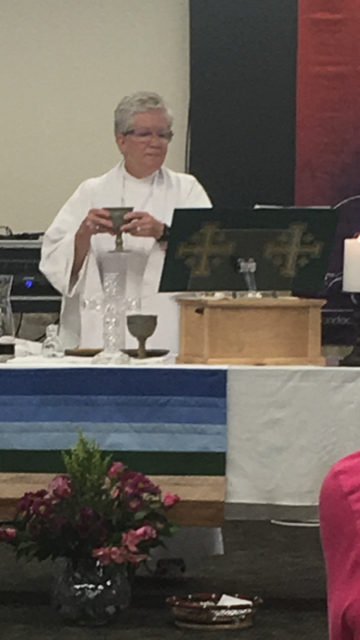
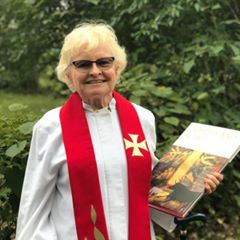
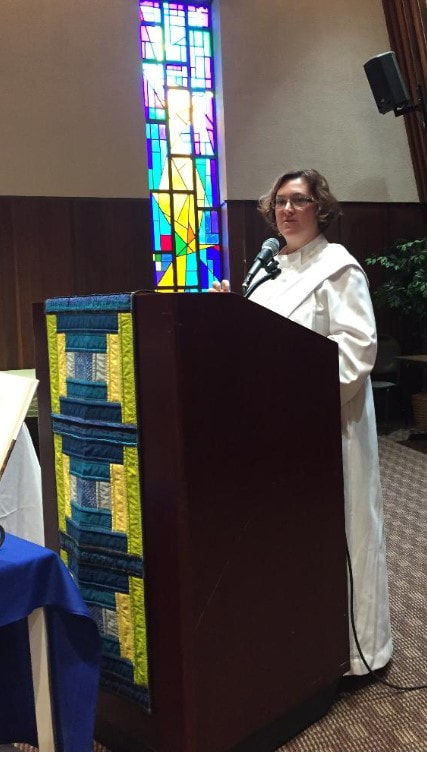
 RSS Feed
RSS Feed
